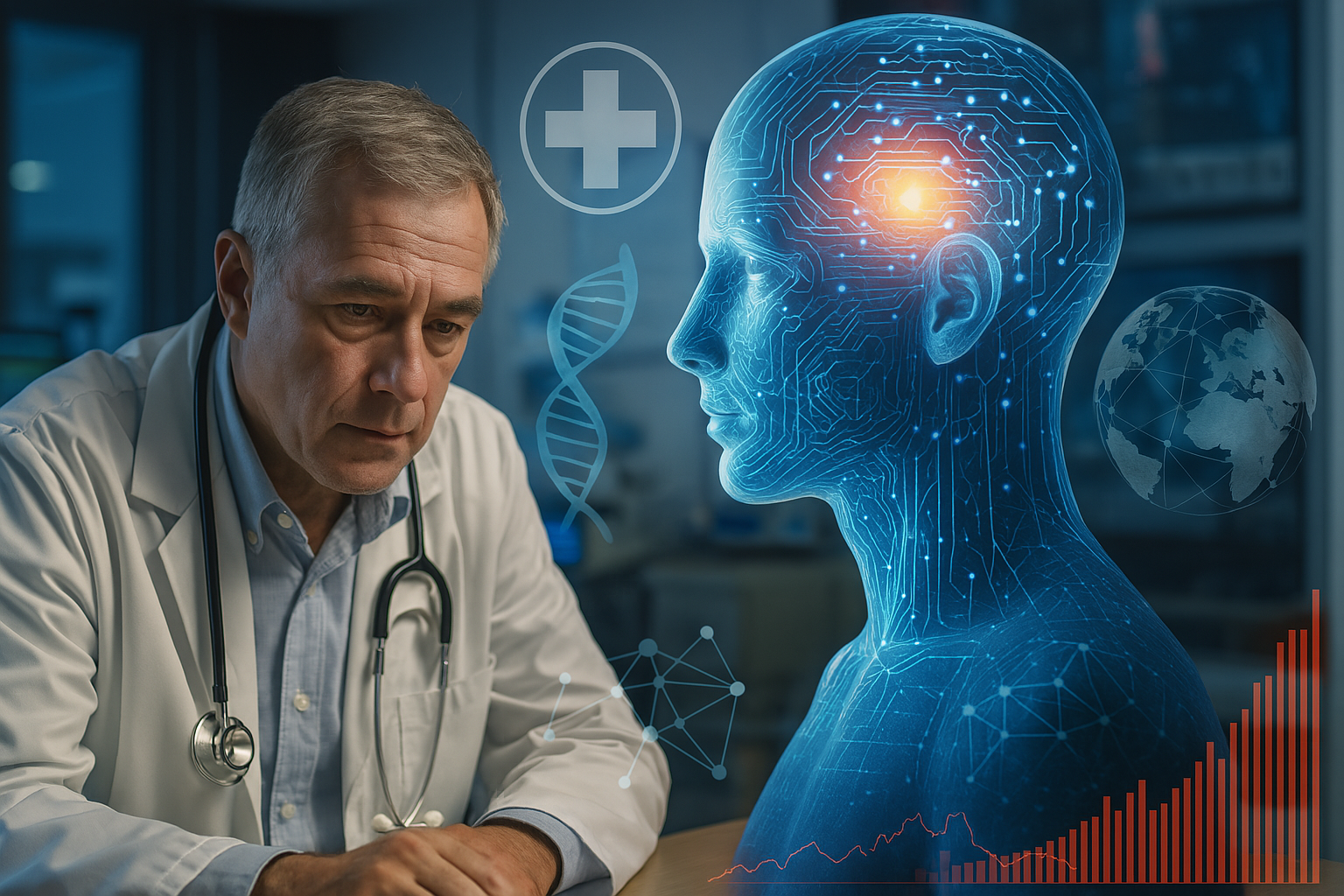Artificial Intelligence (AI) is rapidly advancing and reshaping our world. Its ability to solve complex problems quickly is transforming industries and improving lives across the globe. From healthcare to cybersecurity, AI is not just a tool—it’s a powerful solution that helps optimize systems, make smarter decisions, and deliver better outcomes. Here are ten pressing global issues that AI can help solve:
1. Healthcare
AI enhances early disease detection, enables personalized medicine, and predicts patient outcomes. It analyzes medical records, genetic data, and images to help doctors design individualized treatment plans. AI also accelerates drug discovery by identifying potential compounds and testing their effectiveness. For example, AI tools can detect cancer at early stages through image analysis, significantly improving survival rates.
2. Agriculture
AI supports farmers by increasing crop yields, reducing waste, and boosting profits. It evaluates climate data, soil conditions, and crop patterns to optimize planting and harvesting schedules. AI also detects diseases and pests early, allowing for proactive interventions. This not only improves food security but also reduces environmental impact by suggesting optimal fertilizer and water usage.
3. Education
AI customizes learning experiences by identifying student gaps and recommending personalized study plans. It can assess academic performance, offer real-time feedback, and power intelligent tutoring systems. AI-driven chatbots help students with questions and provide guidance, making education more accessible and effective.
4. Finance
In the financial sector, AI detects fraud, assesses risk, and improves investment strategies. By analyzing large datasets, AI uncovers patterns often missed by humans. It flags suspicious transactions and helps institutions reduce losses. AI also powers automated trading systems and recommends data-driven financial strategies to increase returns.
5. Transportation
AI improves traffic management, route optimization, and accident prevention. It processes traffic data to recommend faster routes and reduce fuel consumption. Self-driving vehicles minimize accidents caused by human error, enhancing road safety. Predictive models help drivers avoid congestion, saving time and resources.
6. Energy
AI optimizes power usage, predicts energy demand, and supports the transition to clean energy. Smart grids use AI to balance electricity supply based on regional demand. AI also improves efficiency in renewable energy systems, decreasing dependence on fossil fuels and reducing carbon emissions.
7. Manufacturing
AI streamlines production by monitoring quality and predicting equipment failures. It analyzes factory data to identify defects and recommend improvements, enhancing product quality and reducing costs. Predictive maintenance systems prevent downtime, increase productivity, and extend machine lifespan.
8. Retail
AI personalizes shopping experiences and optimizes inventory. It analyzes customer behavior to recommend products and predict demand. This leads to fewer stockouts, lower storage costs, and improved customer satisfaction. AI also enhances supply chain management and increases profitability.
9. Environment
AI helps monitor environmental changes and develop sustainable solutions. It predicts the effects of climate change, helping governments and organizations plan mitigation strategies. AI also improves waste management and supports recycling efforts, making a significant impact in the fight against global warming.
10. Cybersecurity
AI plays a critical role in detecting and responding to cyber threats. It monitors network traffic for anomalies and triggers alerts for suspicious activity. AI-driven systems can respond to cyberattacks in real-time, minimizing damage and protecting sensitive data.
Final Thoughts
Artificial Intelligence holds the potential to address some of the world’s most urgent and complex challenges. From enhancing healthcare to ensuring cybersecurity, AI empowers humans to make smarter decisions and optimize outcomes across every sector. However, it’s essential to remember that AI is not a standalone solution—it works best when combined with human insight, ethical guidelines, and complementary technologies.
As AI continues to evolve, platforms like ONPASSIVE lead the way by integrating AI-driven tools into everyday solutions, making innovation accessible to individuals, businesses, and governments worldwide.





